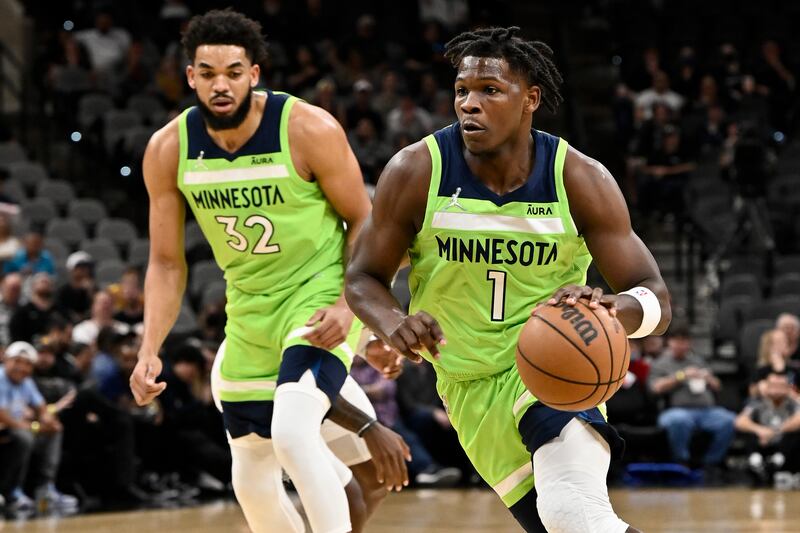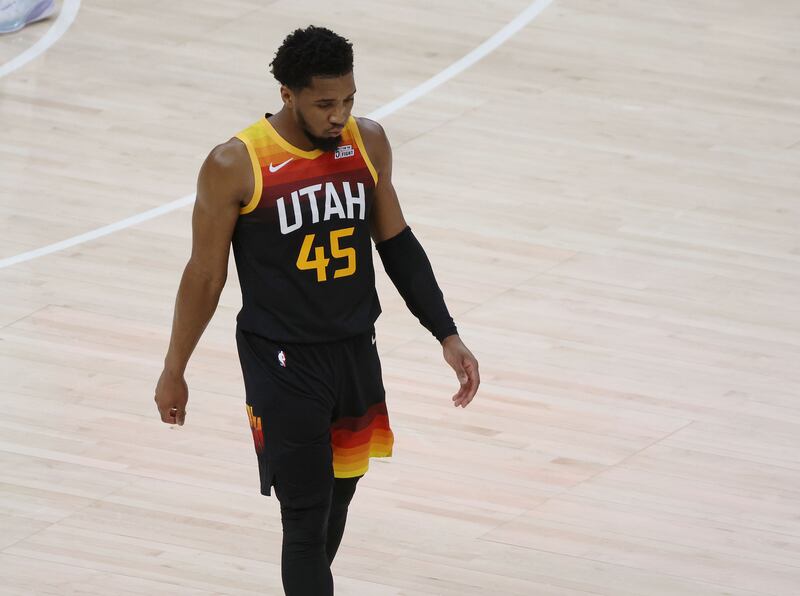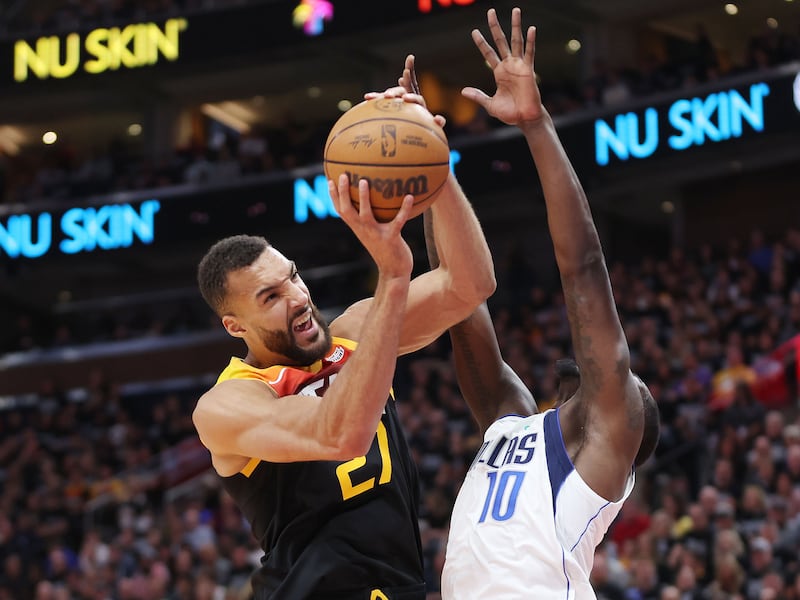When he was introduced last week as the newest member of the Minnesota Timberwolves, Rudy Gobert was all smiles.
The word excited was used early and often as he attempted to explain how he felt about his new situation alongside Karl Anthony Towns, Anthony Edwards and DeAngelo Russell.
The long time Jazz center wouldn’t be in Minnesota, though, had Utah leadership elected to keep him.
A three-time NBA Defensive Player of the Year, multi-time All-Star and All-NBA caliber player, not to mention the face of the Jazz franchise — alongside Donovan Mitchell — players like Gobert aren’t moved often in the NBA. Especially if they haven’t requested a trade.
But Gobert was.
Here’s why.
The Minnesota Timberwolves were highly motivated

On Saturday, Jazz general manager Justin Zanik spoke at length about Gobert and Utah’s decision to trade him.
To say that the Jazz didn’t value Gobert would be a lie. His value was immense to the franchise.
“Look, Rudy was an unbelievable cornerstone of our franchise for a long time,” Zanik said. “Coming here when he was 21, as he says ‘a kid from France,’ I’ve had the chance to watch him grow from the very beginning and (he) was a very special part of our franchise.
“Some of these opportunities that come up are hard. But given the amount of return and how motivated Minnesota was, it was something that we all had to get together as a group and decide, ‘Hey, is this something that we need to do for the organization, while also putting Rudy in a very competitive situation which I think he deserves.’
“It was a group decision and we move on from there.”
The return the Jazz got for Gobert has been well-documented. Utah received Malik Beasley, Patrick Beverley, Walker Kessler, Jarred Vanderbilt, Leandro Bolmaro, plus unprotected first-round picks in 2023, 2025, 2027, a pick swap in 2026 and a top-five protected pick in 2029.
That many assets, including playoff rotation players (Beasley and Beverley) developmental prospects (Vanderbilt, Bomaro and Kessler) plus a wealth of draft equity, was just too much for the Jazz to say no to.
“There are very few players in the NBA that do the things that Rudy does,” Zanik said. “Minnesota evaluated their own roster and made their decisions that he would accomplish a lot of the things that they were trying to get done as they try to move forward.
“It is not like Rudy’s grow on trees, and I don’t want to speak for (Minnesota), but they were obviously very, very aggressive in trying to add Rudy to their team.
“For us, we valued him very very highly, but then it got to a point where what we ended up with as an offer from Minnesota, we had to get together and say, ‘Okay, this is in the best interest of the organization.’”
The Utah Jazz felt their championship window had closed

It wasn’t just that Minnesota made an offer the Jazz couldn’t refuse. Context matters. If the Jazz had just won an NBA title Gobert likely wouldn’t have been traded.
Given that the team had just been eliminated in the first round, though — and hadn’t advanced further than the second round in the past three years — Jazz leadership felt that the championship window had closed.
In their mind, the team didn’t have the ability to improve the roster enough around Gobert to keep the window open. The Jazz simply didn’t have the assets to do it.
“The season wasn’t very much fun this year,” Jazz CEO Danny Ainge said. “The draft wasn’t very much fun. Free agency wasn’t very much fun. We were over the tax, had no draft picks and our team lost in the first round. It wasn’t fun for us.
“We want it to be fun for our fans and our players, but we haven’t had much flexibility to do anything over the last little while.
“I agree (that our window had closed),” Ainge continued, with Zanik expressing his agreement as well. “We’ve talked about those things a lot.”
“Credit to (Jazz owner) Ryan Smith and the ownership group for giving us the opportunity the last three years to really spend and give ourselves a shot (at a NBA title),” Zanik said. “The team fell short. We fell short. We needed to recalibrate and try to go open up the next window.”


